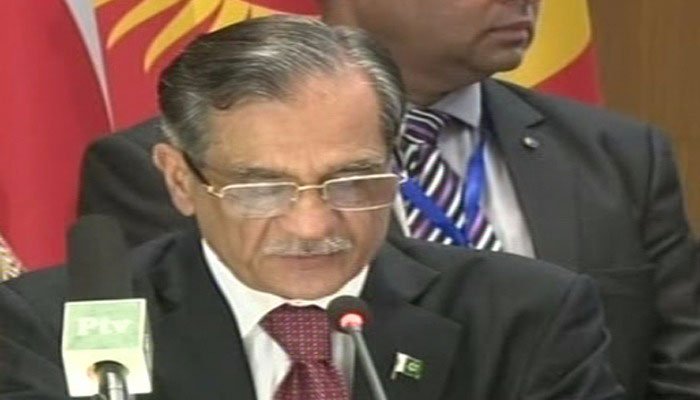| Getting your Trinity Audio player ready... |
The hearing is also related to the president’s later dissolution of parliament at the suggestion of the troubled premier. The matter was heard by a bigger Supreme Court bench consisting of Chief Justice of Pakistan Umar Ata Bandial, Justice Ijazul Ahsan, Justice Mazhar Alam Khan Miankhel, Justice Munib Akhtar, and Justice Jamal Khan Mandokhail.
The case was taken up by Justices Alam Khan Miankhel, Munib Akhtar, and Jamal Khan Mandokhail.
Meanwhile, incumbent Prime Minister Imran Khan has announced that he will participate in a rally outside Islamabad’s red zone. According to a notification issued by President Arif Alvi on Monday, Khan will remain Prime Minister until a caretaker premier is appointed. According to the notification, the incumbent would remain in office until the nomination of a caretaker premier.
According to the Dawn daily, President Alvi has also addressed a letter to Khan and the opposition leader in the outgoing national legislature, Shehbaz Sharif, requesting names of appropriate candidates for appointment as caretaker premier. According to the letter, the national assembly (NA) and the federal government were dissolved on Sunday in accordance with the Constitution.
Alvi told them that if they did not reach an agreement on the appointment within three days of the NA’s dissolution, they would forward two nominees each to a committee to be formed by the speaker, consisting of eight members of the outgoing NA, or the senate, or both, with equal representation from the treasury and the opposition. The members of such committee will be chosen from the Treasury and Opposition benches by the Prime Minister and the Leader of the Opposition.
Shehbaz stated that he will not participate in the process and called it “illegal,” claiming that the president and Prime Minister had broken the law and questioned how they could approach the opposition. In response to Shehbaz’s decision, outgoing information minister Fawad Chaudhry stated, “Pakistan is preparing for elections… Shehbaz has stated that he would not participate in the process; this is his option. Today, we forwarded two names to the president. If (Shehbaz) does not submit the names within seven days, one of them will be finalised.”
Earlier in the day, the cabinet secretariat announced that Khan had “ceased to hold the position of Prime Minister of Pakistan with immediate effect.” However, according to Article 94 of the Constitution, the president “may request that the Prime Minister continue to hold office until his replacement assumes the office of Prime Minister.”
“Mr. Imran Ahmad Khan Niazi shall continue as Prime Minister till the nomination of a caretaker Prime Minister in accordance with Article 224 A (4) of the Constitution of the Islamic Republic of Pakistan,” the President said on Twitter. On Khan’s suggestion, President Alvi dissolved the NA minutes after deputy speaker Qasim Suri rejected a no-confidence resolution against the premier, who had effectively lost the majority in the 342-member lower house of parliament.
After taking a suo motu cognizance of the current political crisis in the country, Chief Justice Bandial stated that any orders and acts initiated by the PM and President regarding the dissolution of the NA will be subject to the court’s order. Despite the weekend, a three-member bench held the initial hearing and issued notices to all respondents, including President Alvi and Deputy Speaker Suri.
According to Ahsan Bhoon, head of the Supreme Court Bar, the Prime Minister’s and Deputy Speaker’s actions violated the Constitution and they should be tried for treason under Article 6.
The crisis developed after Suri rejected the no-confidence move, requiring Khan to advise the country’s president to dissolve parliament, which he could not do until the outcome of the no-confidence vote was known. Salman Akram Raja, a leading constitutional lawyer, said the deputy speaker’s whole procurement and the premier’s proposal to dissolve the legislature were unconstitutional.
The illegality of the verdict, according to Raja, would also render the advice illegal, because the PM cannot give counsel to the assembly after a no-confidence resolution was brought in parliament against him.
















Everything is very open with a very clear explanation of the challenges. It was definitely informative. Your website is extremely helpful. Thank you for sharing!
Id like to thank you for the efforts youve put in writing this website. I really hope to view the same high-grade blog posts from you in the future as well. In fact, your creative writing abilities has inspired me to get my own, personal site now 😉